Crude Reality
Exploring World History
Series Editors
John McNeill, Georgetown University
Jerry Bentley, University of Hawai`i
As the world grows ever more closely linked, students and general readers alike are appreciating the need to become internationally aware. World history offers the crucial connection to understanding past global links and how they influence the present. The series will expand that awareness by offering clear, concise supplemental texts for the undergraduate classroom as well as trade books that advance world history scholarship.
The series will be open to books taking a thematic approachexploring commodities such as sugar, cotton, and petroleum; technologies; diseases and the like; or regionalfor example, Islam in Southeast Asia or east Africa, the Indian Ocean, or the Ottoman Empire. The series sees regions not simply as fixed geographical entities but as evolving spatial frameworks that have reflected and shaped the movement of people, ideas, goods, capital, institutions, and information. Thus, regional books would move beyond traditional borders to consider the flows that have characterized the global system.
Edited by two of the leading historians in the field, this series will work to synthesize world history for students, engage general readers, and expand the boundaries for scholars.
Plagues in World History
by John Aberth
Crude Reality: Petroleum in World History
by Brian C. Black
Smuggling: Contraband and Corruption in World History
by Alan L. Karras
The First World War: A Concise Global History
by William Kelleher Storey
Insatiable Appetite: The United States and the Ecological Degradation of the Tropical World
by Richard P. Tucker
Crude Reality
Petroleum in World History
Brian C. Black
Rowman & Littlefield Publishers, Inc.
Lanham Boulder New York Toronto Plymouth, UK
Published by Rowman & Littlefield Publishers, Inc.
A wholly owned subsidiary of The Rowman & Littlefield Publishing Group, Inc.
4501 Forbes Boulevard, Suite 200, Lanham, Maryland 20706
www.rowman.com
Estover Road, Plymouth PL6 7PY, United Kingdom
Copyright 2012 by Rowman & Littlefield Publishers, Inc.
All rights reserved . No part of this book may be reproduced in any form or by any electronic or mechanical means, including information storage and retrieval systems, without written permission from the publisher, except by a reviewer who may quote passages in a review.
British Library Cataloguing in Publication Information Available
Library of Congress Cataloging-in-Publication Data
Black, Brian, 1966
Crude reality : petroleum in world history / Brian C. Black.
p. cm. (Exploring world history)
Includes bibliographical references and index.
ISBN 978-0-7425-5654-6 (cloth : alk. paper) ISBN 978-1-4422-1611-2 (electronic)
1. PetroleumEconomic aspectsHistory. 2. Petroleum productsHistory. 3. Petroleum industry and tradeSocial aspectsHistory. I. Title.
HD9560.5.B494 2012
338.2'728209dc23
2011051805
 The paper used in this publication meets the minimum requirements of American National Standard for Information SciencesPermanence of Paper for Printed Library Materials, ANSI/NISO Z39.48-1992.
The paper used in this publication meets the minimum requirements of American National Standard for Information SciencesPermanence of Paper for Printed Library Materials, ANSI/NISO Z39.48-1992.
Printed in the United States of America
For Don and Bev
Acknowledgments
Many of us in the field of environmental history trace our own efforts to the work of a few select scholars of the past thirty years. I am particularly fortunate that I can claim that my work grows not only from the writing of Donald Worster, but also from his person. For those of us who have benefited from his generosity and intellect, we also owe a debt to his partner, Bev. Together, they have helped to inspire a new generation of historians. I dedicate this book to them because of all that their hard work has made possible for me and for others.
The preparation of this manuscript benefited from my students in courses in global environmental history and the input of a few anonymous reviewers and of colleagues including Adam Rome, John McNeill, Bill Bowman, Ty Priest, Joe Pratt, David Nye, Ed Levri, Joel Tarr, and Marty Melosi. In recent years, many of us have worked hard as a group to broaden the consideration of energy by historians and, in particular, the consideration of energy within a global context. I especially salute the care of Richard Tucker in helping me to bring the manuscript over the finish line.
I wish to acknowledge the hard work of Susan McEachern and everyone at the press, as well as at my home institution of Penn State Altoona. Todd Davis, Ken Womack, Carolyn Mahan, Ian Marshall, and the rest of my good colleagues continue to make it a wonderful place to teach, write, and learn. And, as always, Chris, Ben, and Sam are where it begins and ends. I offer a particular shout-out for Bens work on the figures contained in these pages.
Finally, though, I will never look at this book without considering Hal Rothman, the UNLV historian who died in 2007. He possessed a knack for providing context and perspectivethe big pictureas well as for speaking his mind. As we drove near Anchorage, Alaska, in the late 1990s, I had finished writing Petrolia and was ready to turn to other, less gritty topics. He turned to me and said: Youre always going to be the oil guy, you know. You gotta keep writing about oil. We all lost Hal entirely too early; however, I feel blessed that I, ultimately, could follow a bit of his sage advice.
Prologue
Dependence, which is tied closely to supply, is the core feature of humans contemporary relationship with petroleum. Initially, oil flowed so freely that a barrel cost just a few dollars. Oil was so cheap that we used it not just for fuel but also to simplify the manufacture of everyday products, ranging from toothpaste to water bottles. Most often, these were products that we first made without petroleum, but cheap crude made them less expensive. In other words, we looked for ways of making crude more integral in everyday human life!
When for a variety of reasons the price paradigm shifted during the late twentieth century and petroleums value skyrocketed, nations dependent on oil found themselves at the mercy of a new world order. This current situation is our crude reality.
The worlds voracious demand for consistent supplies of crude propelled its status beyond that of a mere resource to one of a critical actor, capable of shaping an entire way of lifea culture. The following pages tell the story of the construction of our petroleum culture to the point where, today, humans in most developed nations can be said to exist within an ecology of oil in which fundamental needs and practices of our species would be impossible without it. An ecology, however, does not stop with just utility; our ecology of oil also includes the larger implications and issues created by using crude. Recognition of this totality offers the best promise for helping us create a more sensible energy future.
We must understand the history of our life with oil because of the story that plays out all around us in the early twenty-first century. In short, our dependence places us on an inevitable collision course with petroleums finite supply. Unfortunately, just by reading the daily news, we each have a front-row seat to a dramatic energy transition. It may come in the form of headlines announcing that China Becomes World Leader in Alternative Energy or Oil Prices Rise above $100 per Barrel with No End in Sight or BP Found Negligent in 2010 Gulf Spill. Large-scale issues growing out of our ecology of oil, such as climate change, might also define our future in the form of changing weather patterns or rising sea levels. And, finally, the larger lessons of our crude reality might come in accounts of events that seem to have very little relation to oil.

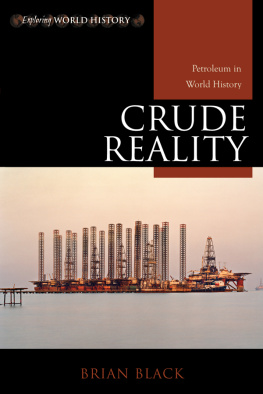
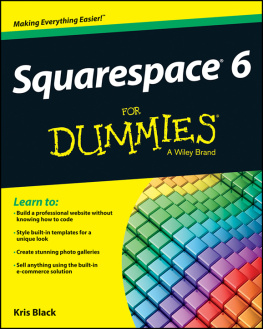
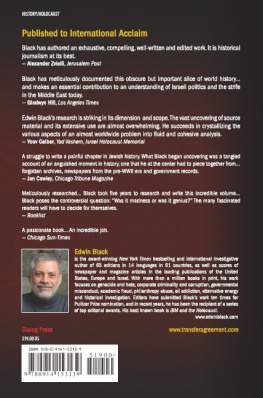

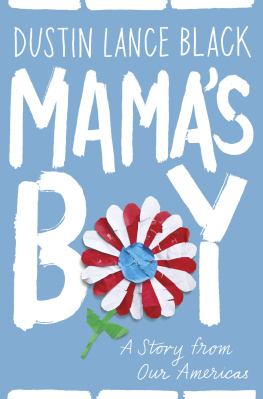



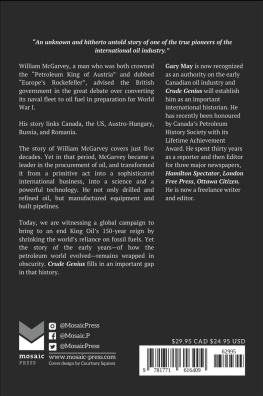
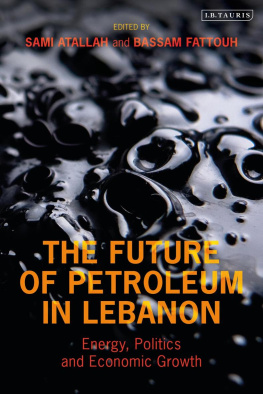
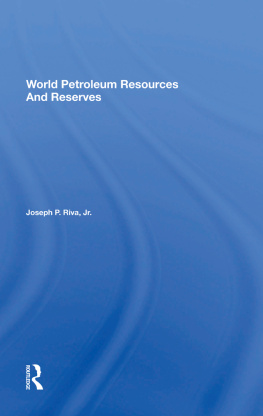
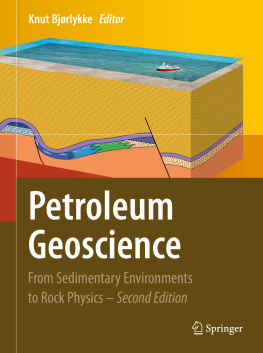

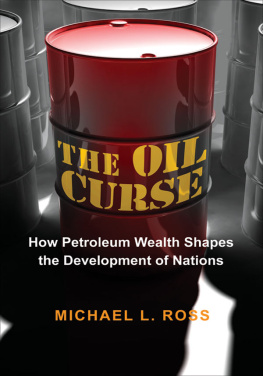
 The paper used in this publication meets the minimum requirements of American National Standard for Information SciencesPermanence of Paper for Printed Library Materials, ANSI/NISO Z39.48-1992.
The paper used in this publication meets the minimum requirements of American National Standard for Information SciencesPermanence of Paper for Printed Library Materials, ANSI/NISO Z39.48-1992.